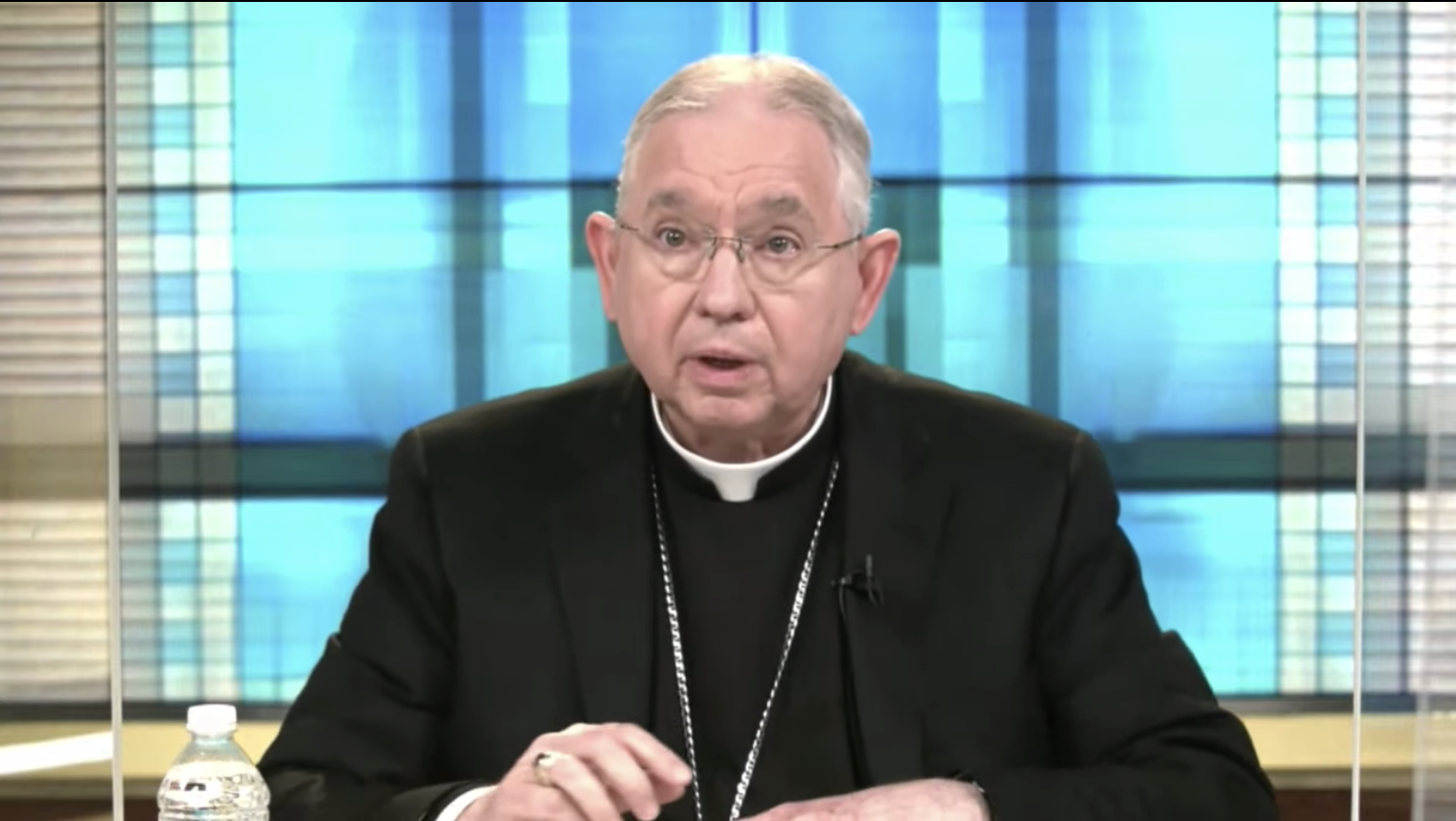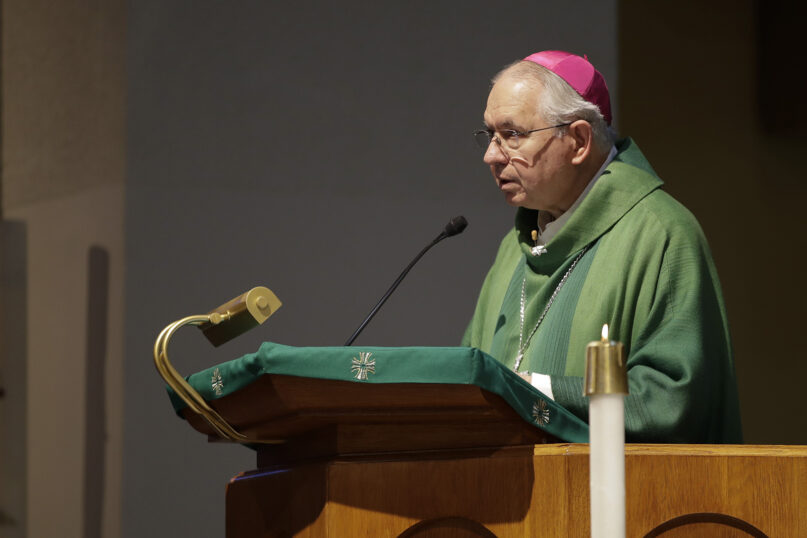(RNS) — Responding to the murder of 22 Mexican immigrants in El Paso, Texas, in 2019, Archbishop José Gómez, who was born in Mexico, reflected on his very personal connection to the victims.
“We have seen the evil of African Americans being targeted in racist terror attacks, notably with the church shooting in Charleston, South Carolina, in 2015,” said Gómez. Invoking the specter of white nationalism, the archbishop of Los Angeles emphasized that the shootings in El Paso (a town in which he spent much of his life) were “carried out in the name of stopping Mexican migration.”
Defending immigrants is at the very heart of who Gómez is. In 2013, while serving as chairman of the USCCB’s committee on migration, Gomez wrote “Immigration and the Next America: Renewing the Soul of our Nation,” a book in which he called Americans’ response to immigrants “the human rights test of our generation.”
In 2007, he helped create the Catholic Association of Latino Leaders, which aimed to create more opportunities for Hispanic communities to connect to the leadership of the American church.
RELATED: Top US Catholic bishop calls social justice movements ‘pseudo-religion’
Yet, since Nov. 4, this same Catholic leader, who has been so invested for so many years in an anti-racist approach, has been taken to task for his lack of concern for social justice and racism. How could this be?
The criticism has come in response to an address Gomez gave via video to a conference in Spain, talking about “the rise of new secular ideologies and movements for social change” in the U.S. and what they mean for traditional Christianity.
In calling these new movements out as “pseudo-religions,” Gómez’s critics say, he showed he is out of touch with the current movement for racial justice — itself supported by many Christians. Some even claimed that his message sought to “erase the voices of millions” of Catholics and Christians of color who are involved in the anti-racism movement.
His own past actions suggest this is not true. So where could such a serious misunderstanding come from?
Partly it comes from the rashness of his critics. If they had granted the archbishop a modicum of charity — or simply googled him — they would have avoided the self-own of trying to take down an anti-racist hero. In so doing they would have had to recognize that Gómez’s concern is not with faithful Christians who identify in some way with the new social justice movements.

Archbishop José Gómez of Los Angeles speaks at a 2020 virtual meeting of the U.S. Conference of Catholic Bishops. Video screengrab
Both Gómez and his Catholic critics agree that anti-racism is a centuries-long movement within the church grounded in traditional (and specifically) Christian ideas about the human person and the theological foundations on which her value is built.
But Gómez, who has been around the block on this set of issues, also recognizes that a new development in the social justice movements known as intersectionality means that there isn’t just a commitment to racial justice — but rather to a much broader worldview that entails concurrent commitments related to matters of family, sex, gender and reproductive justice.
It is this broader worldview to which Gómez is clearly objecting here, because it is often explicitly hostile to traditional Christianity.
Though there is obviously something new here when it comes to hostility to traditional Christianity, Gómez could have been more clear about the obvious fact that not every person or organization associated with these new movements, obviously, is responsible for every hostile threat the church has faced.
But far from out of touch, the archbishop has felt the pressure of this broader worldview, directly and indirectly. While in California he’s faced attempts to shut down Catholic hospitals and to make pro-life pregnancy help centers refer clients for abortion. Pro-life groups have been refused the right to advertise on major social media platforms. The people of the movements he criticized have defaced and destroyed statues of beloved saints with impunity.
He has even fought off a serious attempt to legally break the seal of the confessional.
One resource for distinguishing between allies who find important connections within some of these movements and those who are hostile to traditional Christianity is, well, talking. Dialogue. Being direct about aims and motives. Being as clear as possible about disagreements. Finding overlapping consensus. And, if possible, working together toward shared aims.
RELATED: Gomez, painting Catholics as victims, goes after his woke oppressors
Here’s an example: Gómez and the California Conference of Catholic Bishops have worked with disability rights groups for many years now in their mutual attempts to resist the ableist outcomes and attitudes associated with physician-assisted killing.
This is the kind of dialogue that is not only possible, but absolutely necessary if the church and our allies are to be successful in resisting the new movements that offer a rival and hostile vision of the good.
But this requires us — all of us — to be generous, precise, forthright and clear. The matters involved are too important for any other approach.






